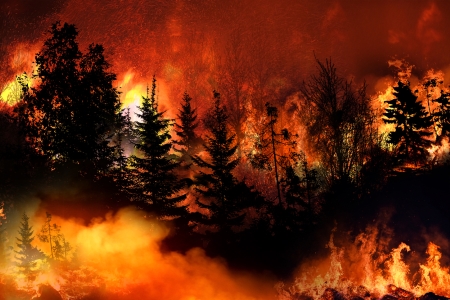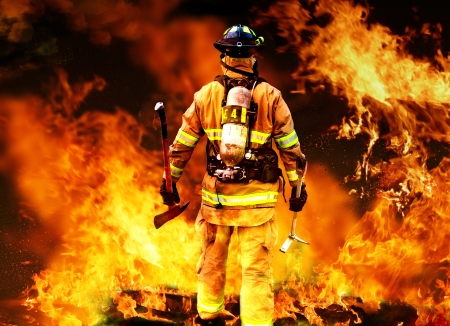Wildfires Triggering Lung Problems have spoiled the sweet summer of 2023 for many people with respiratory illnesses. At FLASS, we want you to know the reasons distant wildfires can cause you problems.
Likewise, we want to give you some solutions to mitigate the effects of this pollutant currently blowing your way from Canada. The FLASS blog has not covered much about pollution since an article about the pollutants at the Brazil Olympics.
Wildfires Triggering Lung Problems: Smoke and Particulate Matter

Thanks to The Winds, Wildfires Are Triggering Lung Problems From Hundreds of Miles Away.
Wildfires in certain states of the country have long been a seasonal problem. However, this summer, wildfires in Canada have sent us especially egregious smoke and particulate matter.
And those threats to the lungs will spread far and away on the wind. If you have asthma or COPD, the doctors, and staff at FLASS want you to watch out for wildfires triggering lung problems. Smoke and particulate matter could be blowing your way soon.
Wildfires Triggering Serious Lung Problems for At-Risk Individuals.
Even healthy lungs respond with irritation because of both smoke and particulate matter generated by wildfires. Experts at WebMD have analyzed smoke, stating, “When a wildfire begins, it burns anything in its path, like trees and houses.
And they add, “As a result, the air around it can include gases, water vapor, and small particles.”
Keep in mind that these elements of smoke are particularly harmful or possibly deadly to people with any chronic respiratory condition.
Wildfires Triggering Dangerous Gasses and Have Serious Consequences
Have you ever considered the varied gases from wildfire smoke? Chemical compounds carried by wildfire smoke include some potent poisons.
As the wind wafts wildfire smoke into your lungs, the lungs are assaulted with several dangerous compounds. The list includes carbon monoxide and carbon dioxide.
Likewise, you could be exposed to Nitrogen oxide and other toxic chemicals.
Particulate Matter: Another Wildfire Trigger for Respiratory Reactions
Not only does the smoke mix with the pollutants already in the air, but it also carries particulate matter directly into your lungs. Lungs react. Not only do lungs react to the number of tiny particles carried in smoke, but also the size of them. An the smaller the particles are, the more danger they carry.
Measuring the Danger of Wildfires Triggering Lung Problems

You Might React to Smoke and Particulate Matter With Moderate Symptoms Like a Scratchy Nose.
Particulate Matter or PM can be numbered according to its size. PM2.5 or PM10 are tiny and can get into your eyes or your lungs. One of the most dangerous pieces of particulate matter is sized PM10. PM10 means they’re smaller than 10 microns.
Tiny Particulate Matter Triggering Actual Lung Damage
However, they can get even smaller. Imagine a toxic piece of particulate matter that measures only 0.1 micron. They are small enough to penetrate deeply into the lungs.
Additionally, they can even enter your bloodstream. Such tiny pieces of particulate matter are termed super-fine particles.
“As a comparison, a human hair is 70 microns across.” Thus, Particulate Matter poses some of the most serious threats in wildfire smoke.
Wildfires Triggering Symptoms of Irritation from Smoke and Particulate Matter
You might experience a runny nose or phlegm.
Coughing, wheezing, and breathlessness might ensue.
Moreover, troubling minor symptoms include a Scratchy throat and sinus pain.
Wildfires Triggering Lung Problems: Serious Effects Evolving from Wildfire Particulate Matter

Additionally, Wildfires Are Triggering Lung Problems in People With Asthma or COPD. Any Medical Condition Can Sensitize You to Smoke From Wildfires.
Increasingly serious symptoms manifest as headache and chest pain. Trouble Breathing, accelerated heartbeat, and asthma attacks could overwhelm you. Also, the particulate matter could exacerbate COPD.
Needless to say, a heavy dose of wildfire smoke could send high-risk people to the hospital.
Wildfires Triggering Lung ProblemsWildfires Ignite Serious Danger in High-Risk Patients
When the smoke and particulate matter invade a high-risk patient’s lungs, we have seen deadly consequences. If you have COPD, lung cancer, diabetes, or a heart condition, pay close attention to the consequences listed below:
- Heart failure,
- Heart attack,
- And stroke.
Wildfires Triggering Lung Problems in High-Risk Groups
High-risk groups for lung problems from the smoke and particulate matter of wildfires and summer heat include several large groups of people.
- Are you younger than 18 years or 65 and older?
- Have you become Pregnant?
- Do you fight long-term conditions, like heart, lung disease, asthma, or diabetes?
- Are you a wildfire fighter or do you work outdoors?
- Do you lack access to affordable health care?
- Tips for Avoiding Wildfires Triggering Lung Problems
The American Lung Association has produced some ideas for avoiding lung problems associated with the smoke and particulate matter spawned by wildfires. Let us summarize them for you in an easy-to-remember format.
1. Avoid lung problems inherent with nearby condiions by staying indoors.
2. When the exterior air is full of pollution, close doors and windows and protect your interior air.
3. If you have a chronic lung disease or an immune system disorder, watch your symptoms. Check our list in this article and realize symptoms can escalate from moderate to critical quickly. Don’t hesitate to call your doctor.
4. Remember children need more observation when there is a wildfire in the air. “Their lungs are still developing, and they breathe in more air (and consequently more pollution) for their size than adults.”
Terrific Take-Aways

Long After The Wildfire is Extinguished, It May Still Be Triggering Lung Problems Even at a Great Distance.
Did you know about The American Lung Association’s Lung Helpline at 1-800-LUNGUSA is staffed by nurses and respiratory therapists? This helpline is free, and they can inform you about keeping your lungs–and your family–safe from wildfire smoke and particulate matter pollution.
Thus, we would be remiss if we did not share their number. Likewise, you can obtain more information about the risks wildfire smoke poses to your lungs at this credible online resource Lung.org/wildfires.


